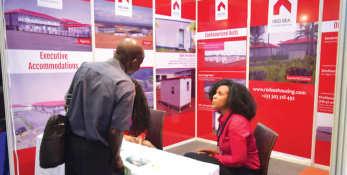
12 minute read
21st Nigeria Oil & Gas Conference & Exhibition
Executives Calendar 2022
JANUARY
25-27 MSGBC Basin Summit & Exhibition Dakar, Senegal https://energycouncil.com/event-events/msgbcbasin-summit/
FEBRUARY
10-12 6th Oil & Gas Africa Dar-es-Salaam, Tanzania www.expogr.com/tanzania/oilgas 14-16 EGYPS Egypt, North Africa www.egyps.com
22-24 International Energy Week Virtual and London www.ieweek.co.uk
22-24 SAIPEC Lagos, Nigeria https://saipec-event.com/en 27 Feb- NIES 3 March Abuja, Nigeria https://nigeriaenergysummit.com/
APRIL
14-15 ICNGO 2022 Cape Town, South Africa https://waset.org/natural-gas-and-oil-conference-inapril-2022-in-cape-town
MAY
19-21 9th Oil & Gas Africa Nairobi, Kenya www.expogr.com/kenyaoil
JULY
4-7 21st Nigeria Oil & Gas Conference & Exhibition Abuja, Nigeria www.nogevent.com
Readers should verify dates and location with sponsoring organisations, as this information is sometimes subject to change.
Spotlight on East Africaʼs oil and gas sector in Tanzania
TANZANIA, ONE OF the major producers of natural gas, has 842 km of gas transmission pipelines, of which 58 km is utilised for industrial customers in Dar es Salaam. The discovered natural gas reserves amount to 57.54 trillion standard cubic feet (tcf), according to the Ministry of Energy data (December 2017).
Global oil demand is estimated at 104 MMbbl/d in 2025 and natural gas continues to expand its share across major markets, according to Research and Markets. In Tanzania, the dependence on oil and gas is further expected to increase as the country’s infrastructure continues to heavily rely on petroleum-based products.
In addition to this, the market players are undertaking several investment plans to cater to the increasing demand for oil and gas products. Government policies and support related to the exploration and production of oil and gas are playing a major role in the industry and encouraging companies to boost Tanzania oil and gas investments.
With as much as 100+ exhibitors spread out over a 5,000 sq m of exhibition space, the sixth edition of Oil & Gas Africa offers a nearly 60% increase in size from last year. More than 100+ exhibitors will be comfortably accommodated at the venue with a special showcase of the open display of machinery.
The event belongs to the largest chain of trade exhibitions in Africa. It is held in six African countries with the oldest being in Tanzania and Kenya for the last 24 years. With exhibitors from 22 countries in 2022, the events have been fully booked every year since 2014.
Some of the exhibitor profiles include Delina Group, Portwest, Jingmen Hongtu Special Aircraft Manufacturing Co Ltd, Agrovision Limited, Petro Nikan Alborz, Pacific Petroleum Limited / Trinity Energy Limited, Real Flame, Distrilab, Hytera Communications Corporation Limited, Petrojet, Kopagas, Micansan Tanker Treyle, Valvulas Fevisa, Fanatech Engineering & Trading LLC and more.
Exhibitor profiles include Drilling, Lifting & Well Completion; Cranes and Winches; Offshore Platforms; Design, Floating & Refining Equipment and Services; Instrumentation & Control Technology; Health Products, Safety & Environmental Products and Management; Petrochemical Equipment and Services and much more.
The event will provide exciting networking opportunities to build strong business relations and develop the region’s oil and gas sector.
Image Credit: Expo Group
From 23-25 November, the main AOTC conference programme addressed the fundamental issues affecting Angola’s oil and gas industries moving ahead. The opening session discussed the crucial issue of energy transition and its need ‘to be harmonised’ with the oil sector.
SPEAKING ON THE sidelines of Angola Oil and Gas Service and Technology Conference (AOTC), the Angolan Oil & Gas Service Companies Association (AECIPA) president and chairman of AOTC Bráulio de Brito said that the conference focused on local content and how this can add more value to the economic diversification as well as socio-economic development in Angola.
He defended the local content legislation and highlighted the need for Angolanisation of the oil and gas and energy sector for inclusive development. Brito further expressed his hope that the full potential of the legislation will be realised once it is completely implemented.
Brito also spoke about the challenges faced by Angola’s oil and gas sector. According to him, the management of COVID-19 and the obstacles that it created for the southern African nation as well as for other neighbouring countries is the crucial one as Angola has to heavily depend on the import of materials for the oil and gas sector.
While speaking at the opening of the AOTC in November, José Barroso, secretary of state for oil and gas, Angola, stressed on the need that the energy transition needs to be aligned with the oil and gas exploration fabric.
The energy transition agenda should be harmonised to ensure the sustainability of the economy, he added.
Local companies can play a fundamental role in combating greenhouse gas emissions, he explained. According to him, local companies can bring cutting-edge technological advancements in the market which, ultimately, can ensure efficient production with less environmental impact.
Barroso also encouraged international oil and gas companies to form joint ventures with Angolan partners to both benefit from Angola’s lucrative reserves and add value to the business opportunities that lie in the value chain – across upstream E&P as well as downstream transportation and marketing.
Barroso further noted that 232 local-content firms are registered in Angola that could create more than 16,000 jobs, predominantly for local staff and technicians.
Some of the other issues that the conference discussed included the latest exploration and production updates; the next licensing round; planning for 2022 and beyond; recovery and opportunities for the industry and business post COVID-19; presentation of the latest oil and gas technologies and services; major projects and project finance; development of Angola’s refining capabilities; diversity in the workplace and more.
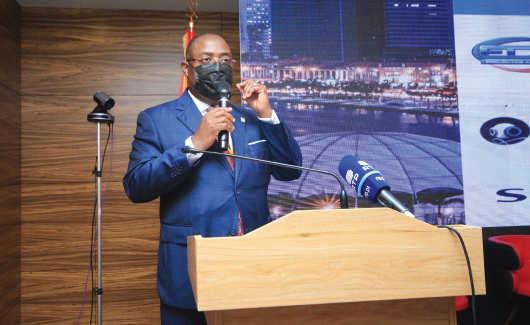
Image Credit: GEP
Brito said that the conference discussed the economic diversification goals in Angola.
DNG Energy announces commercial launch of LNG products in South Africa
DNG ENERGY HAS announced to commence the delivery of liquefied natural gas (LNG) to commercial customers in the industrial, transport, marine and power sectors, with the aim of catalysing the growth of a new gas economy in South Africa.
The move also focuses on supporting the shift to more sustainable energy sources, facilitating industrialisation, creating new jobs and offering commercial customers more sustainable energy options.
Aldworth Mbalati, founder and CEO, DNG Energy, said, “The launch of DNG Smart Gas, our commercial LNG operations, brings us significantly closer to our vision of achieving energy security and stability in South Africa. This has been a long and complex journey with numerous
Image Credit: DNG Energy
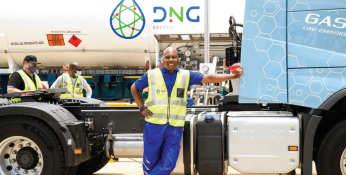
Aldworth Mbalati is the founder and CEO at DNG Energy.
barriers to surmount – from securing financing to obtaining regulatory approvals.”
Last year DNG received final authorisation from the Transnet National Ports Authority to begin bunkering operations in the Port of Coega, in the Eastern Cape. The company has deployed a 125,000 cbm-capacity floating storage unit (FSU) to support LNG bunkering operations.
This advanced infrastructure will be used to offer ship-to-ship transfers for international trading ships as well as onshore LNG transfers via road and pipelines. DNG has developed a network of gas supply, enabling reliable LNG supply to penetrate the energy market nationwide.
EQUATORIAL GUINEA’S MINISTER of mines and hydrocarbons, HE Gabriel Mbaga Obiang Lima, met with Congolese President HE Denis Sassou Nguesso, delivering a special message on behalf of Equatoguinean President, HE Teodoro Obiang Nguema Mbasogo, regarding regional energy integration.
The meeting addressed growing South-South cooperation and encouraged the establishment of a more robust regional energy sector able to meet the needs of the citizens of Central African Economic
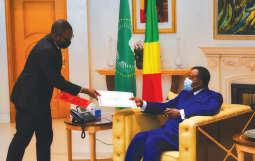
Equatorial Guinea’s oil minister and Congolese President advanced CEMAC Energy Cooperation. and Monetary Community (CEMAC) member states.
HE President Nguesso was also accompanied by Congolese minister of hydrocarbons HE Bruno JeanRichard Itoua, who held his own bilateral meeting with H.E. Minister Lima. Both oil ministers participated in the CEMAC Energy Business Forum in Brazzaville, taking place November 29-30 and seeking to foster discussions among regional stakeholders and accelerate sustainable, regional energy growth.
The Republic of the Congo is not the only country at the forefront of Equatorial Guinea’s campaign to expand cross-border cooperation. In September, HE minister Lima met with Cameroonian President H.E. Paul Biya to boost cooperation in the hydrocarbons sector and enhance commercial exchanges between CEMAC member countries, with a view to driving economic development within the region. IntraAfrican cooperation is being positioned as the key to unlocking Africa’s energy prosperity, able to increase investors’ confidence, trigger large-scale projects that individual countries could not support alone, and generate a more active African influence within the global energy community.
THERMAL POWER WILL continue to make up the majority of Nigeria’s power mix in the next decade, rising from an 82.9% share in 2020 to 84.1% by 2030, according to GlobalData.
GlobalData has further noted that the country’s reliance on thermal power has meant renewable energy has taken a back seat, holding a meagre 0.2% in 2020 that is only expected to rise to 1.5% by 2030.
Rohit Ravetkar, power analyst at GlobalData, said, “The dominance of thermal power in Nigeria is doing no favours for renewables. The country has the ninth largest natural gas reserves in the world, and the largest in Africa. This has resulted in what started as a growing preference for gas-based generation, but has quickly turned into reliance.”
According to GlobalData’s latest report, Nigeria Power Market Outlook to 2030, Update 2021 – Market Trends, Regulations, and Competitive Landscape, thermal power capacity stood at 13.35GW in 2020 and is expected to rise to 20.15GW by 2030. Ravetkar added, “The Nigerian government has rolled out several policies to support the development of its renewable sector. This includes the Renewable Energy Master Plan (REMP) and the off-grid electrification strategy. In the short term, the REMP includes a moratorium on import duties for renewable technologies. The plan advises the design of further tax credits, capital incentives and preferential loan opportunities. ”
Impact announces spud of Venus exploration well, offshore Namibia
AFRICA OIL CORP has announced that Impact has spudded the Venus-1X offshore exploration well in Namibia Block 2913B (PEL 56).
This, together with the adjacent Block 2912, are held through Impact’s wholly owned subsidiary, Impact Oil and Gas Namibia (PTY) Ltd. Both blocks are operated by TotalEnergies EP Namibia B.V., a wholly owned subsidiary of TotalEnergies.
The well is being drilled in 3,000m water depth by the Maersk Voyager drillship.
Impact holds a 20% interest in Block 2913B, was joined by TotalEnergies as operator in 2017, bringing significant deepwater drilling expertise to the Joint Venture, and in 2019 by Qatar Energy. TotalEnergies holds a 40% interest in Block 2913B, Qatar Energy holds a 30% interest, NAMCOR, the Namibian state oil company, holds a 10% interest.
Impact also holds an 18.89% working interest in the adjacent Block 2912, where it is partnered with TotalEnergies (operator 37.78%), Qatar Energy (28.33%) and NAMCOR (15%).
Siraj Ahmed, CEO of Impact, commented, “This is an exciting moment for Impact and our shareholders. Impact, together with our partners in the Government of Namibia, have been working to mature and drill the Venus prospect since 2014. Venus-1X is a world-class, basin opening well which, if successful, could be transformative for Namibia.”
Chevron signs production sharing contract for Block EG09 in Equatorial Guinea
AMERICAN MULTINATIONAL ENERGY corporation Chevron has signed an agreement with the government of Equatorial Guinea for Block EG09 – located in the Douala Basin on the border of Cameroon.
Representing a notable achievement for both Chevron as it moves to increase its penetration in the Equatorial Guinean market, and the country itself in its journey towards resource maximisation, the agreement grants Chevron 80% ownership with GEPetrol holding the remaining 20%.
Chevron is eager to expand its portfolio within Equatorial Guinea, with the company’s acquisition of Noble Energy –completed in October 2020 for US$13bn – enabling Chevron’s entrance into the market. Having completed the Alen Gas Pipeline project – a 950 million cu/f pipeline linking the Alen gas field in the Douala Basin offshore Equatorial Guinea to existing onshore processing facilities, with first gas achieved in February 2021, the company is on track to be a leading hydrocarbon producer in Equatorial Guinea. By working closely with the government, Chevron will carry out a work program that will lead to the potential development of Block EG09.
Several major finds over the last decade emphasise the potential of the Douala Basin, leading to a number of exploration and production companies demonstrating an interest in key block including EG09. During the country’s 2019 bid licensing round – whereby seven companies were selected and attributed concessions for 9 blocks - Block EG09 was awarded to Noble Energy and GEPetrol.
Block EG09, previously explored by South Africa’s PetroSA, has the potential to hold sizeable oil and gas reserves owing to its close proximity to other Blocks where large-scale discoveries have been made. Notably, in August 2019, Noble announced the discovery of oil at the Aseng 6P well in Block 1 – which is already producing and located north of Block EG09. As Chevron takes over exploration, stakeholders are eagerly awaiting results.
“We welcome this agreement as this is a confirmation of the amazing prospects that still exist in Block EG09. With the right exploration game and technology. ”
TotalEnergies EP Gabon finalises divestment of interests to Perenco Oil and Gas
TOTALENERGIES HAS ANNOUNCED the closing of its agreement to divest to Perenco Oil and Gas Gabon the Cap Lopez Terminal and nonoperated assets of its 58%-owned affiliate TotalEnergies EP Gabon.
The company has announced this after receiving the approval of Gabonese authorities.
With this transaction, in an amount of US$350mn before final adjustment, TotalEnergies EP Gabon is divesting its interests in seven mature offshore fields operated by Perenco Oil and Gas Gabon, along with its interests and operatorship in the Cap Lopez oil terminal, to Perenco Oil and Gas Gabon.
The divested assets' production stood at 8,400 barrels of oil equivalent per day for the first three quarters of 2021.
Henri-Max Ndong-Nzue, president of TotalEnergies EP Gabon, said, “This transaction is aligned with TotalEnergies' strategy to enhance its portfolio by divesting mature, high breakeven fields. TotalEnergies EP Gabon is refocusing on its operated offshore assets in the Anguille and Torpille sectors and remains a committed oil industry player in Gabon.”
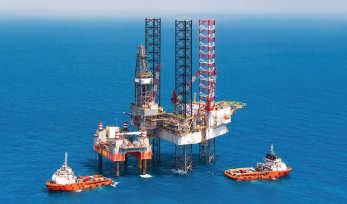
Image Credit: Adobe Stock
The divested assets' production stood at 8,400 barrels of oil equivalent per day for the first three quarters of 2021.




